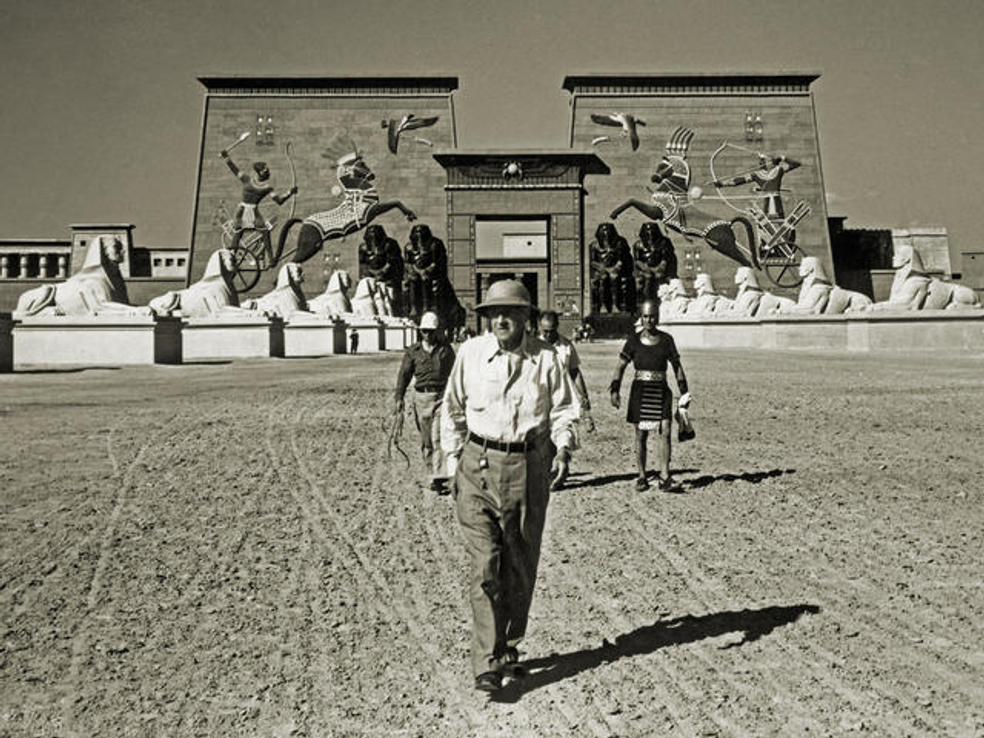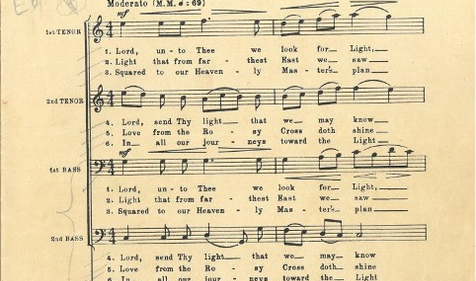Cecil B. DeMille was a filmmaker, actor, and Freemason, known as the founding father of American cinema.
“The person who makes a success of living is the one who sees his goal steadily and aims for it unswervingly. That is dedication.” ― Cecil B. DeMille
Having made 70 feature films during his career, many of which were commercial triumphs and reached broad audiences, Brother Cecil B. DeMille led an extraordinary life. DeMille's career as an actor and director spanned the silent and sound eras, and he is considered within Hollywood a founding father of American cinema and among the most commercially successful producer-directors in film history.
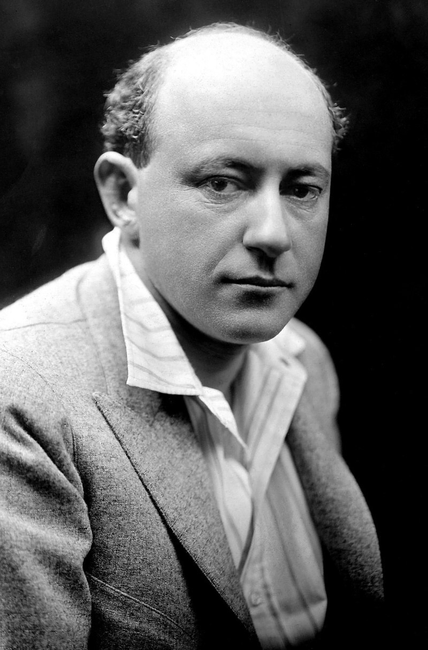
The award-winning DeMille was an active Freemason and member of Prince of Orange Lodge #16 in New York City. His films, including The Ten Commandments, The King of Kings, Cleopatra, and Samson and Delilah, are notable for their sheer scale and advanced cinematography for the time. As one of the 36 co-founders of the Academy of Motion Picture Arts and Sciences (AMPAS), it's safe to say Brother DeMille had a hand in shaping the world of cinema and, subsequently, American culture.
Childhood
Henry Churchill DeMille and his wife, Matilda Beatrice DeMille, were on vacation in Ashfield, Massachusetts, when they welcomed a son into the world. On August 12, 1881, Cecil Blount DeMille was born and was the second of the couple's three children. His family returned to New York the next month, where Henry worked as an English teacher at the school known today as Columbia University. Born in North Carolina, Henry was a playwright and faculty member during the early years of the American Academy of Dramatic Arts.
Matilda was a literary agent and scriptwriter, and she met Henry through a music and literary society in New York. Together, they raised Brother DeMille into a confident child with a love for theater. He grew up watching his father rehearse plays, sending his imagination running wild. Henry and Beatrice operated a private school in New Jersey and attended Christ Episcopal Church. It was here that Brother DeMille believed he first visualized the story of his 1923 version of The Ten Commandments.
Henry de Mille died suddenly from typhoid fever when Cecil was just 12. On his deathbed, Henry told Beatrice he did not want his sons to become playwrights. Of course, Brother DeMille’s hard work and creativity would take him far beyond the confines of the stage. With three kids to care for, Beatrice sent Brother DeMille to Pennsylvania Military College when he was 15. He was a complex boy, escaping the school to try and join the Spanish-American War. He failed to meet the age requirement and returned to school, where he reportedly excelled in personal conduct.
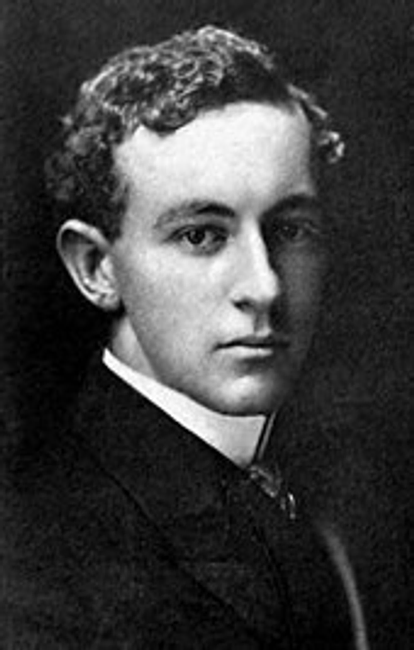
After the military college, Brother DeMille attended the American Academy of Dramatic Arts, graduating in 1900. For graduation, he performed the play The Arcady Trail while theater producer Charles Frohman watched from the audience. Frohman was impressed and cast Brother DeMille in his play Hearts are Trumps, which was the young actor's Broadway debut on February 21, 1900.
To the Stage and Beyond
Brother DeMille's long and prestigious career in entertainment officially began in the theatrical company of Charles Frohman. He immediately starred in productions of A Repentance, To Have and to Hold, and Are You a Mason, the latter a comedy about a young husband who pretends to join the Freemasons as an excuse to get out of the house. While acting in Hearts are Trumps, Brother DeMille starred alongside Constance Adams. The couple married on August 16, 1902, and stayed together for the remainder of their days.
Brother DeMille continued acting for the next decade until he created the Jesse L. Lasky Feature Play Company in 1913 alongside Jesse Lasky and Sam Goldfish (later Samuel Goldwyn). Brother DeMille immediately became director-general and was responsible for making the films, including directing and supervising the whole process.
The following year was eventful for the DeMille family. Brother DeMille put his entire cast and crew on a westbound train to shoot a film in Arizona. Unsatisfied with Arizona as the setting, they ventured further west to Los Angeles. Upon arriving, he decided against filming in Edendale, where many studios were, and instead chose to shoot in Hollywood. Brother DeMille’s first film, The Squaw Man, which he co-directed with Oscar Apfel, was an hour long and an immediate sensation. It was the first feature-length film made in Hollywood and was such a success it led to the eventual founding of Paramount Pictures and Hollywood becoming the "film capital of the world." In December 1914, Constance and Brother DeMille adopted John DeMille, a fifteen-month-old child.
The Father of American Cinema
Following the success of his first film, Brother DeMille began working at a feverish pace. He made "Hollywood" synonymous with success and ushered in the evolution of cinema from the silent era to sound and into the introduction of color films. By 1915, Brother DeMille had already directed 20 films, many of which were hits.
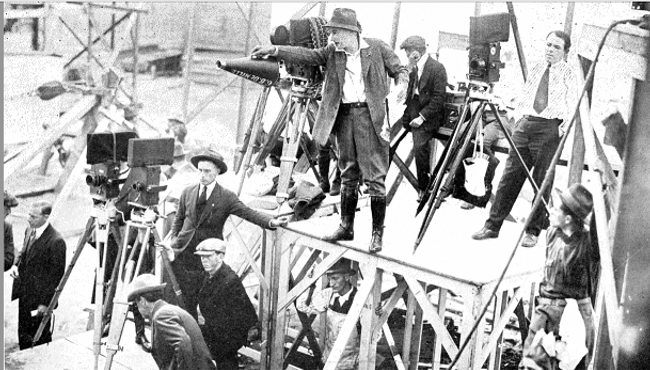
As Brother DeMille became the American film industry's most successful director, he began working on increasingly sophisticated productions. He famously shot bigger and more extravagant scenes, and in 1923, he released The Ten Commandments, which marked a profound evolution in his filmmaking. It was produced on a budget exceeding a half million dollars, the most expensive production at Paramount. Despite concerns from the executives regarding the price tag, the film was a huge commercial success.
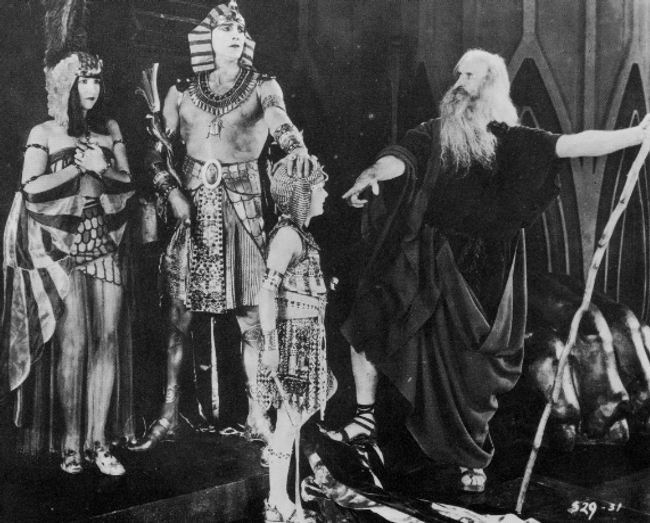
The film industry was moving from the silent era into sound, and Brother DeMille was at its heart. He invented new audio and camera equipment and continued pumping out films to great commercial success. He used his position to extend his professional ventures beyond Hollywood, opening the Mercury Aviation Company, one of America's first commercial airlines, entering the real estate market, and even serving as the vice president of Bank of America and the Commercial National Trust and Savings Bank in Los Angeles.
In the 1930s, his fame as a filmmaker was surpassed by his fame as a radio star. Brother DeMille hosted, produced, and directed Lux Radio Theater, a weekly show on CBS discussing films from 1936 to 1945. Lux Radio was tremendously popular, with forty million weekly listeners.
His biggest movies came during the 1940s, partially due to the advent of technicolor. In 1949, he released the Biblical blockbuster Samson and Delilah, which grossed $11 million ($141 million in 2023 dollars).
Exodus
Brother DeMille released The Greatest Show on Earth in 1951 when he was 70. It was a physically taxing film to direct, but it earned him the Academy Award for Best Picture and the Irving G. Thalberg Memorial Award. Brother DeMille followed up this success with an even more ambitious project: an epic remake of his movie The Ten Commandments, a film about the life of Moses.
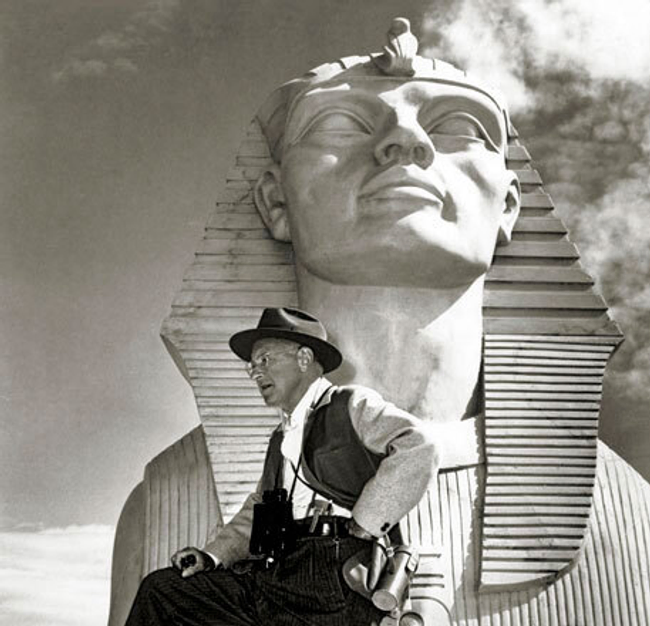
It was a four-hour sprawling production largely filmed on-site in Egypt and, at the time, was the most expensive movie ever made. The scene depicting the parting of the Red Sea was challenging and took six months to film. Brother DeMille employed special effects never performed before, including splicing footage from the banks of the Red Sea with scenes filmed in Paramount Studios in Hollywood. While the results were stunning, the stress of pursuing ever larger and more demanding projects began to take its toll. On November 7, 1954, Brother DeMille was directing the Exodus sequence, which included filming 12,000 people in the desert at Beni Suef when he suffered a severe heart attack. Amazingly, he never missed a day on the set despite his serious illness.
Critics and audiences alike adored the film, and in 1957, it was nominated for seven Academy Awards. According to Guinness World Records, it is the eighth highest-selling film at the box office when adjusted for inflation. After The Ten Commandments, Brother DeMille stepped away from filmmaking to focus on his health. It would be his final film as a director.
Death and Legacy
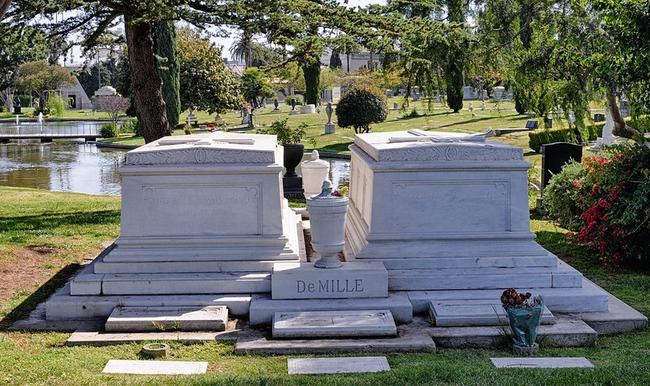
Over the next few years, Brother DeMille struggled with his heart, ultimately passing away on January 21, 1959, at age 77. Even in his old age and poor health, he was still eager to return to work and had hoped to complete a science fiction movie set in space. With a career that spanned from the stage to the screen and across many decades, DeMille garnered many awards and industry accolades. His many recognitions include:
- The Irving G. Thalberg Memorial Award at the Academy Awards in 1953.
- A Lifetime Achievement Award from the Directors Guild of America Award in 1953.
- A nomination from the Directors Guild of America Award for Outstanding Directorial Achievement in Motion Pictures for The Greatest Show on Earth.
- Two stars on the Hollywood Walk of Fame for his contribution to the motion picture and radio industry.
- Two Academy Awards, including an Honorary Award for "37 years of brilliant showmanship" in 1950 and a Best Picture award in 1953 for The Greatest Show on Earth.
- A Golden Globe Award for Best Director.
- His films The Cheat (1915) and The Ten Commandments (1956) have been selected for preservation in the National Film Registry by the United States Library of Congress.
- In 1957, DeMille received an honorary Doctorate of Letter degree from Brigham Young University. He also received an honorary Doctorate of Law degree from Temple University the following year.
Perhaps most notable, Brother Cecil B. DeMille is remembered as a key innovator in developing the classic narrative of film, with the Hollywood Foreign Press/Golden Globes opting to create the annual Cecil B. DeMille Award in his honor. His namesake award recognizes recipients for a lifetime of achievement in film. It has been awarded to notable recipients such as Walt Disney, Dean Martin, Bing Crosby, Sean Connery, Jack Nicholson, Steven Spielberg, Meryl Steep, and many other worthy and talented people.
Without question, Brother DeMille lived what can only be described as an extraordinary life.
Related Stories
Discover additional Scottish Rite blogs and news on this topic.
